
The closed-circuit rebreather was first conceived by Italian scientist Giovanni Borelli in the late 1600s, but it wasn’t until the invention of the galvanic oxygen sensor in the 1960s that the development of mixed gas rebreathers was possible. Similarly, mix technology was first developed by the US Navy in the 1930s to enable divers to reach deeper depths to rescue sailors from downed submarines. The technology was later adopted by commercial offshore oilfield divers in the 1960s in response to the need to dive deeper.
Both of these technologies came together in Dr Bill Stone’s 1987 Wakulla Springs Project – the first large scale amateur mixed gas diving expedition, which arguably serves as an appropriate demarcation of the birth of tek diving, though it would be another five years before this type of diving got its name.
This timeline serves to highlight some of the key milestones and developments that led to the emergence of technical diving in the mid–1980s to late 1990s. We extended the timeline through the year 1999, when the first production mixed gas rebreathers for sport divers had become available.
The decade that followed, 2000-2009, could well be characterised as the infancy of rebreather use in the sport diving community. Unfortunately, like the initial adoption of mixed gas technology, there were a disproportionately high number of rebreather fatalities in those early days, which were the focus of Rebreather Forum 3 held in Florida in 2012. But that’s a story for another time. That being said, as you might suspect, further advancements in the art and science of diving, diving technology and safety culture have continued on through the present day.
1660
Diese Geschichte stammt aus der Issue 05 - 2020(119)-Ausgabe von Scuba Diver.
Starten Sie Ihre 7-tägige kostenlose Testversion von Magzter GOLD, um auf Tausende kuratierte Premium-Storys sowie über 8.000 Zeitschriften und Zeitungen zuzugreifen.
Bereits Abonnent ? Anmelden
Diese Geschichte stammt aus der Issue 05 - 2020(119)-Ausgabe von Scuba Diver.
Starten Sie Ihre 7-tägige kostenlose Testversion von Magzter GOLD, um auf Tausende kuratierte Premium-Storys sowie über 8.000 Zeitschriften und Zeitungen zuzugreifen.
Bereits Abonnent? Anmelden
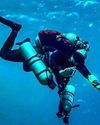
The Making Of A World Record-Breaking Diver
Descending more than 300 metres into the depths of the ocean may sound like a daunting prospect to even the most seasoned diver. But to one man, it was just another a challenge that he set for himself to see how far he was able to push the envelope.
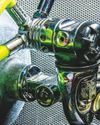
Risk Mitigation: Hose Failure
An unexpected outcome

Top 10 Wrecks Of Asia-Pacific
We present a curated list of the top 10 most famous wrecks found in the Asia-Pacific region, listed in no particular order
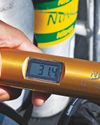
From The Medical Line: Diving After DCS
DAN medical information specaialists and researchers answer your dive medicine questions

Cave Exploration: Beginning With The End In Mind
Building complex adventures on simple skills
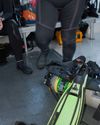
Dive Slate: Stay Safe On Board
When preparing for a dive, safety is at the top of the list – checking gear, learning potential site hazards and discussing procedures with your divemaster or buddy.

101 Tips On Becoming A Better Tek Diver
Technical diving takes divers beyond the typical recreational scuba diving limits, opening up many new and exciting possibilities.
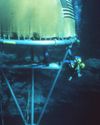
TECHNICAL DIVING TIMELINE (1660–1999)
It’s fair to say that the emergence of “technical diving” in the late 1980s, that is, the introduction of mixed gas technology, and later mixed gas rebreathers to the sport diving community, represented the culmination of hundreds of years of scientific discovery and technological development.

FLYING AFTER DIVING
From the Safety Stop

DIAGNOSING DECOMPRESSION ILLNESS
Incident Insight